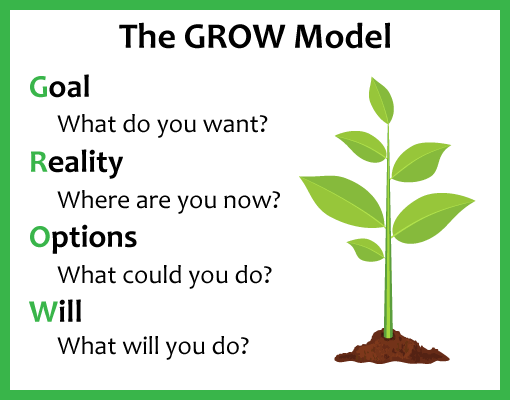Garry Gormley shares his favourite ideas for improving coaching sessions in the call centre, learned through many years of first-hand experience.
1. Discuss the Purpose of Each Coaching Session
Coaching is well planned and has a structure – it has a purpose. Your teams should understand the purpose of every coaching session.
We need to help the team see why they need to improve in the given area, not just how.
The purpose isn’t just to “get better”, you need to help the team to see why they need to improve in the given area, not just how. In fact, sometimes it is best to let them find the “how” part out for themselves.
When you give your teams the answer, they aren’t doing the thinking and therefore are not growing as much as they could if they had to find their own answers and come to their own conclusions.
It is best to help your team understand this thinking, so they embrace your methods of coaching, instead of thinking: why won’t you just give me the answer?
2. Use a Model That Works for You
Leaders are often promoted internally with no management induction or training on how lead call centre coaching sessions, learning through trial and error.
While leaders would ideally have more support, trial-and-error learning isn’t necessarily such a bad thing. There are a lot of coaching models out there to experiment with.
Having said that, if you are flitting between them, it can become confusing, especially if you are not a seasoned coach. So, try them out one method at a time.
One such model that works well is the GROW model, which allows the advisor to take control of their own self-development. It is outlined below.

This model is simple to use and really clear for the coach and the coachee to understand. Just don’t stick to it too rigidly; remember to adjust it fit different advisor needs.
For more examples of models like this, read our article: Contact Centre Coaching Models: Which Is Best for Your Coaching Sessions?
3. Create Coaching Logs to Help Build and Follow Up Actions
What gets written down can be immensely powerful in driving accountability.
So many great call centre coaching sessions end poorly because no one has written down the actions that you’ve agreed, and these can be golden ideas, so don’t lose them.
Get the actions written in the session in the coachee’s own words and coach them to the specifics…
Most managers make the mistake of owning the actions or taking them away to type them up. Forget about that! Get them written in the session in the coachee’s own words and coach them to the specifics and details of the action and the dates they want to achieve it by.
4. Get to Grips With Your Performance Baseline
In most contact centres we have specific targets or key performance indicators (KPIs) that need to be delivered, and a lot of coaching sessions are centred around these, rightly or wrongly.
It’s good to understand what difference you want to make in your business using coaching. If you are new to coaching and want to understand the potential impact that it can make, the first thing to do is look at your current performance baseline.

It’s good to understand what difference you want to make in your business using coaching.
Your performance baseline is your performance against key metrics before you implement changes to your coaching programme.
Just bear in mind, whatever you measure, there could be other factors influencing this. For example, the fact that you are now sitting with your teams and taking an interest could in itself change how they behave.
5. Build a Bank of Questions That Work for You and Your Team
One of the things I hear the most from coaches and team leaders is: “I struggle to think of questions I can ask.”
The more experience you get with coaching, the better you will become and the more natural it will feel, but if you are new to coaching, yes, you can feel like a deer in headlights thinking of the next question
But there are a couple of pointers that make this easier:
- Be naturally curious. This will help you explore more of what your coachee means from what they say, so listen carefully to the words and phrases they use and explore what they really mean.
- List some great coaching questions in advance of your session that cover some of the key areas in the GROW model. You can even take these into your sessions as a safety net, but preparing your sessions in advance will help.
6. Build Advisor Accountability
After a manager has been on a coaching course, the team suddenly becomes cynical: “Oh, he’s been on a course, hasn’t he.” Does that sound familiar?
Quite often we don’t communicate as managers what our “learning journeys” are and what we are trying to do to help our teams. This is often because we expect a lot of ourselves and we think our teams feel we should already have the answers.
We expect a lot of ourselves and we think our teams feel we should already have the answers.
Immunize yourself through communicating with your team what you have been through and what you will be doing differently over the next few weeks and months to help form some new habits.
After making such an announcement, the team will expect to see you acting differently and to hear what their roles will be in this.
For example, the team will now be getting coaching logs that they can own for their own development to allow them to track their progress. This should be exciting for them as they are getting more time and more development.
Just don’t disguise the new dark arts that you have acquired in training. Instead be bold and overt in your new skills and how you will be bringing them to life.
7. Evaluate Your Time and the Demands
What stops you coaching? All too often, we claim that we don’t have time to coach and that other things get in the way.
But what could be more important as managers than to develop your people? Yet most managers claim they don’t have time and there is too much to do.
Reviewing what you do and the value of your call centre coaching activities is important. Scrutinizing this and its possible root cause is key to evaluating how your time is best spent.

Reviewing what you do and the value of your call centre coaching activities is important.
Then, review how you are utilizing the time that you do have. High complaint volumes can be tracked back to see where you should perhaps be looking to focus your call centre coaching.
So, be ruthless with your coaching time, considering the root cause of key customer problems, while also thinking about the root cause of what is taking you away from your team.
Communicate this across your peer team and your line managers, so you can work as a group to see where you can best utilize your time.
Find more advice on finding the time for coaching in our article: Being Super-Busy: The Modern Excuse for Not Coaching Staff
8. Change Your Coaching Style to Suit Different Advisors
“I have to extract every last idea and everything I say needs to be an open question.” That can be the feeling of a first-time coach, but it is simply not the case. Sometimes it can even feel contrived or forced and can create unnecessary tension once the session gets going.
Sometimes, the fewer questions you can ask, the better, as it means the coachee is doing the talking.
So consider when to ask an open question, and remember that sometimes the fewer questions you can ask, the better, as it means the coachee is doing the talking.
Asking the right questions to get the right participation and response is better than asking a hundred open questions and feeling like you’ve just put the person you’ve coached through the Spanish inquisition.
9. Be Your Authentic Self, It’s Just a Conversation
Once you have been on a coaching course or had some training, you don’t suddenly don a cape and become batman or superwoman.
Yet sometimes we feel, as coaches, that we have to wear a coaching cloak and act in a different way because we are coaching. Coaching sessions can be uncomfortable when we think this way.
Sometimes we feel, as coaches, that we have to wear a coaching cloak and act in a different way because we are coaching…
Coaching, simply put, is having an open conversation about how that other person thinks and feels. Because we label this as “coaching” often means we put a different wrapper round it, which can feel odd.
You know your people, so use this knowledge to develop rapport with them, so that these conversations feel natural.
10. Learn From Difficult Coaching Sessions
It is all right if a coaching session does not go to plan. Use this as an opportunity to talk it through with your peers and learn from the experience.
Often, we work ourselves up and tie ourselves in knots. Just remember, when you first started riding a bike, how many times did you fall off?

Garry Gormley
If you are new to coaching, you might fall off the bike a few times. As you get more comfortable with your style, the approach and the call centre coaching models that you use will become more familiar – just like the bike did.
The key from all of this is to learn from what doesn’t go quite right, what questions didn’t land well. Did you over-coach or move to a more directive approach? This is all fine and you’ll get better the more you do it.
Written by: Garry Gormley at FAB Solutions
For more ideas on how to improve your call centre coaching, read our articles:
- How to Achieve Customer Service Excellence Through Coaching
- 16 Customer Service Training Ideas – With Activities, Games and Helpful Techniques
- How to Improve Agent Performance in the Call Centre – With a Checklist
Author: Garry Gormley
Published On: 27th Jul 2020 - Last modified: 14th Aug 2025
Read more about - Skills, Employee Engagement, Garry Gormley, Skill Development, Training and Coaching






































